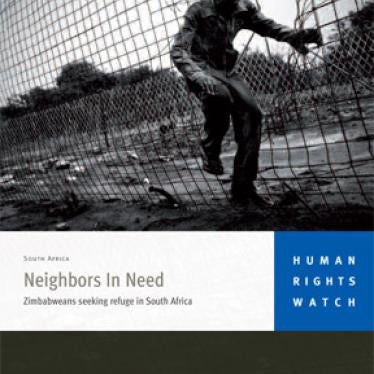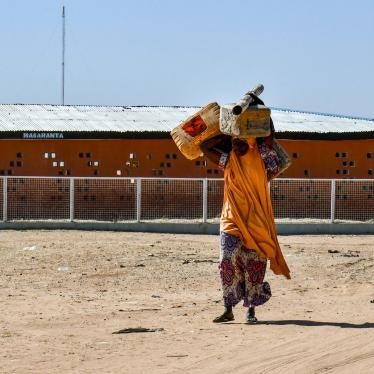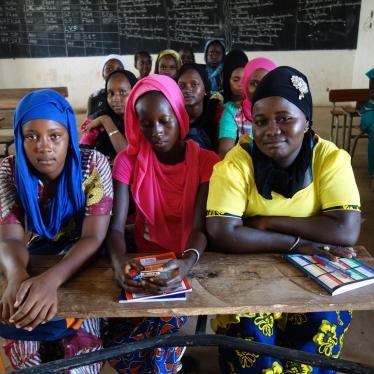(Johannesburg) - South Africa's positive decision to grant temporary work permits to Zimbabweans in South Africa should help protect people fleeing the crisis in Zimbabwe, Human Rights Watch said today.
The government announced on April 3, 2009, that it would hand out "special dispensation permits" to legalize Zimbabweans' stay and give them work rights and access to basic health care and education. The decision should lessen their vulnerability to violence and exploitation both in their homeland and in South Africa.
"After years of fleeing persecution and economic meltdown, well over a million Zimbabweans in South Africa will finally get the protection they deserve," said Gerry Simpson, refugee researcher at Human Rights Watch. "Human Rights Watch welcomes the decision, but calls on South Africa to halt all deportations of Zimbabweans immediately and swiftly begin issuing these permits."
A June 2008 Human Rights Watch report, "Neighbors in Need: Zimbabweans Seeking Refuge in South Africa," called on South Africa to grant all Zimbabweans in South Africa temporary status and the right to work. The report said a temporary status policy would help protect Zimbabweans against exploitation and violence when crossing the border and after they arrive. It also said the policy would relieve South Africa's asylum system - overburdened with over 250,000 claims from Zimbabweans - and allow Zimbabweans to fend for themselves and to support their desperate families at home. Granting Zimbabweans the minimum wage, it said, would help South Africans compete fairly with Zimbabweans for jobs, lessening resentments that ignite xenophobic violence.
Despite the announcement, the South African government said it will continue to arrest and deport to Zimbabwe anyone who appears to be Zimbabwean, does not have an immigration or asylum permit, and also cannot prove their nationality. Human Rights Watch called on the South African government to ease the requirements for proving Zimbabwean nationality pending the introduction of the new permit system.
The six-month permits will be issued to anyone who can prove their Zimbabwean nationality and may be extended if conditions in Zimbabwe do not improve. The government has yet to announce details of how, where, and when the permits will be issued. Under international and South African law, Zimbabwean refugees remain entitled to claim asylum in South Africa, although the authorities have not yet clarified whether a person may apply for asylum and for a special dispensation permit at the same time.
Since 2005, hundreds of thousands of Zimbabweans fleeing political violence, mass forced evictions, and economic deprivation caused by President Robert Mugabe's destruction of the Zimbabwean economy have sought refuge in South Africa, only to face mass deportations, a dysfunctional asylum system, and further economic deprivation.
Human Rights Watch's report drew on first-hand accounts from Zimbabweans in South Africa. The report examined South Africa's decision to treat them merely as voluntary economic migrants and its failure to respond effectively to stop the human rights abuses and economic deprivation in Zimbabwe that caused their flight. It also called on South Africa to halt its deportation of almost 300,000 Zimbabweans every year and to grant them temporary status including the right to work.







